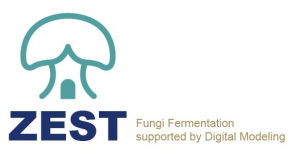Fungi fermentation supported by digital modeling
Mar 01,
2026
Zest Project: transforming food waste into sustainable mycoprotein with AI
The Zest Project, a €7.5 million EU-funded initiative led by the Danish Technological Institute (DTI), is pioneering a sustainable approach to protein production by converting food waste into mycoprotein using mushroom fermentation and artificial intelligence .
Key Highlights:
- Innovative Fermentation Process: Utilizing edible mushroom strains, the project ferments agricultural byproducts—such as sugar beet residues, spent brewer’s grain, and fruit peels—in specially designed bioreactors. This process yields mycoprotein, chitin, and other valuable bio-based materials suitable for food, nutraceuticals, cosmetics, and packaging applications.
- AI-Driven Optimization: Advanced machine learning models monitor and adjust fermentation parameters like temperature, pH, and oxygen levels in real-time. This ensures optimal growth conditions, enhances yield and quality, and minimizes waste and energy consumption.
- Sustainability and Efficiency: The method boasts a lower environmental footprint, requiring less water and emitting fewer greenhouse gases compared to traditional protein production. Additionally, mycoprotein offers nutritional benefits, including high digestibility and essential vitamins like B12 and D.
- Circular Economy Contribution: By valorizing agricultural sidestreams, the project not only reduces waste but also lowers production costs, making sustainable protein more accessible to consumers.
For a deeper dive into how the Zest Project is reshaping sustainable protein production, please visite their website here.






















